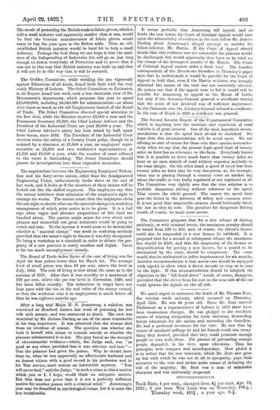After a long trial Major H. R. Armstrong, a .solicitor,
was convicted at Hereford Assizes last week of poisoning .bis -late wife .with arsenic, and •was sentenced to death. The ease was described:by Mr. Justice Darling as one of the most remarkable in -his long experience. It was admitted that the woman died from an overdose of arsenic. The question was whether she took it herself with intent to •commit suicide or whether the prisoner administered it to her. The,jury found on the strength of circumstantial -evidence—which, the Judge said, was " as good as any other, provided that it was -relevant and true"— that the prisoner had given the poison. Why he should have done so, when -he was apparently an affectionate husband and an honest citizen with a good record in his profession and in his War service, must remain ,an inscrutable mystery. • you will never find;" said the Judge, " ip such a crime as this a motive which you or 1, 1 hope, would think an adequate motive. But that does not prove that it is not a perfectly sufficient motive; for another ;person with a criminal mind." ,Arinstrong's case may be ,described in psychological .terms, tut it is none the ;gee lue-XUlieable.


































 Previous page
Previous page